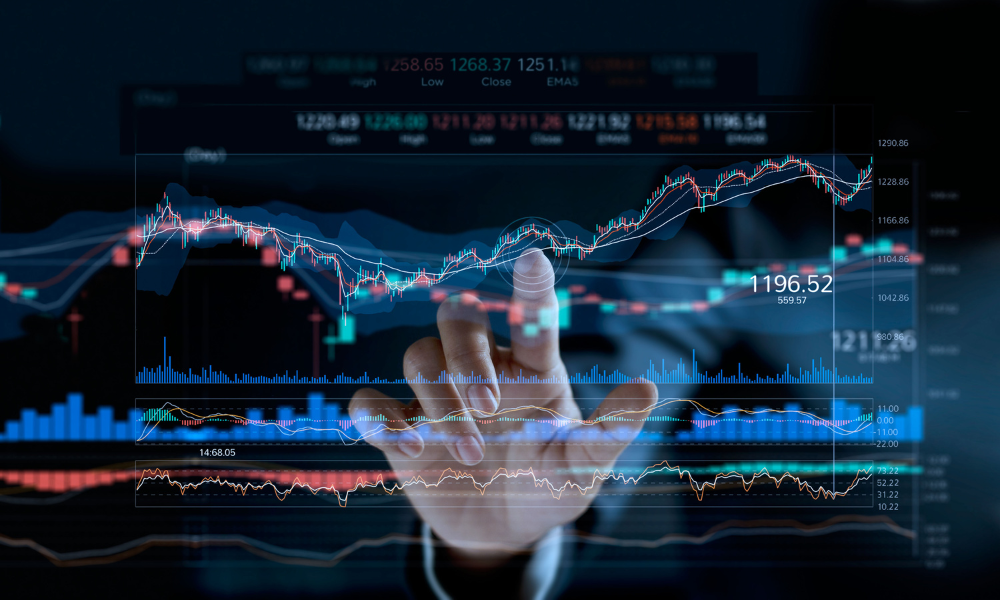CIO explains how a sentiment shift has disproportionately impacted tech stocks, but notes that most tech companies don’t show fundamental weakness

The recent correction witnessed on the S&P 500 and the broader pullback across US equities has been led by mega-cap technology stocks. Those same names that led market growth for so much of 2023 and 2024 have begun the year as among the ‘biggest losers.’ The so-called ‘magnificent seven’ of Tesla, Meta, Alphabet, Amazon, Nvidia, Apple, and Microsoft have pulled back to the tune of slightly over five per cent year to date, with some apparent recovery from their nadirs last week. Many of those companies, though, continue to generate massive profits while others remain well-poised to lead in the ongoing rise of AI. So why have they fallen and what can advisors and investors expect from them next?
Elliot Johnson notes that there’s some textbook market rotation at work here. The CIO of Evolve ETFs explained that in period of a market correction, especially one that appears intimately tied to sentiment, the recent leadership tends to be among the hardest-hit names on the market. He argued, though, that the outlook for most of these tech names remains intact and that there are opportunities now in tech both among and beyond the ‘mag seven’ for advisors to pick up potential upside.
“Tech and mega-cap tech is the market because of how big they’ve become, and that’s relevant because market leadership, by definition, has to get hit when the market gets hit,” Johnson says. “I think there’s been a bit of a misunderstanding in a lot of media coverage about the cause and effect here. The big macro picture for the US market, in my opinion, has nothing to do with the tech sector.”
US trade policy, coupled with a less-than-positive response to both tariffs and spending cuts by the Trump Administration, has prompted a shift in internal market dynamics towards a more bearish environment for large-cap equities and liquid equity indices, Johnson explains. Because large-cap tech has led the market and occupies an increasingly large share of major indices, a hit to those indices impacts tech stock performance. He contrasts a story about market dynamics with the fundamental drivers for many of these tech stocks: the promise of artificial intelligence and the remarkable profitability found in some of these names.
Of all the names in the magnificent seven, Tesla Motors has seen the biggest fall in its share price since the start of the year. It was down over 40 per cent before recovering significantly at the start of this week. Johnson sees that particular price adjustment as multifaceted, noting that Tesla has often been a volatile stock to begin with. He notes that investors have begun to see more problems with the EV thesis overall, and have punished the company for its CEO’s ties to the Trump administration as well as the destruction of some of its dealerships and vehicles. Nevertheless, Johnson describes his team as “Tesla bulls,” highlighting the company’s apparent progress in robo-taxi technology and the potential advantages from a regulatory standpoint that may come from Elon Musk’s role in the US government.
Beyond that one company, Johnson continues to insist that the technology theme remains intact. He sees opportunity in the semiconductor and chip space as demand continues to grow for these key components. He also sees cybersecurity names as quite attractive as key players in the ongoing AI and tech revolutions. Data centre exposure, too, could help advisors and investors who want access to the AI and technology theme but want to avoid some of the volatility that can come with the top end of the market.
“There's a gold rush on, but there's a lot of volatility in the people mining the gold, maybe you can sell picks and shovels,” Johnson says of data centres.
Because the pullback in tech was largely the product of market rotations and investor sentiment, in his view, Johnson believes a few key policy changes could see growth appetites return for this sector. He would like to see the US Fed cut rates again, aligning themselves more closely with President Trump’s policy goals. He would also like another “ChatGPT moment” where wide consumer bases get immediate exposure to how much progress has been made on AI. He also thinks that amid a whirlwind of news, investors need to find a way to calm themselves.
“Everybody needs to relax. The new world order that's being worked out right now. There's a lot of bluster, there's a lot of news around it. There's a lot of polarization, because it's Donald Trump,” Johnson says. “But people don’t look at these things in context. You need to think about the actual economic impact…I think the people who will do the best this year are those who look at periods of volatility like we have right now and see them as a great time to pick up a little more of the long-term themes that they’ve already decided they want to be in.”



